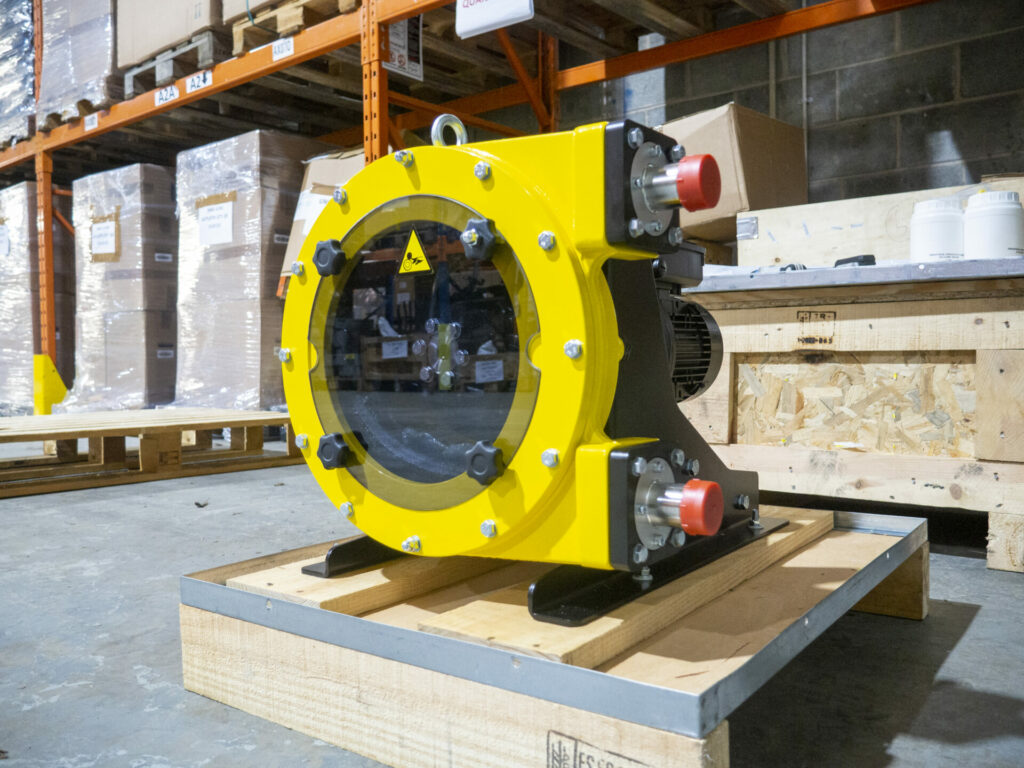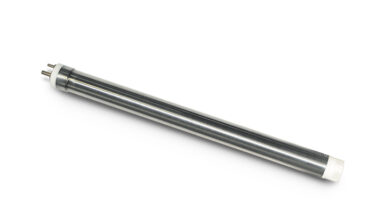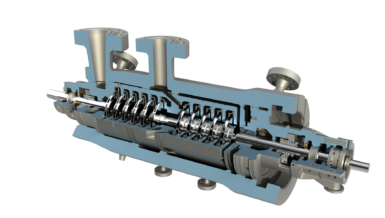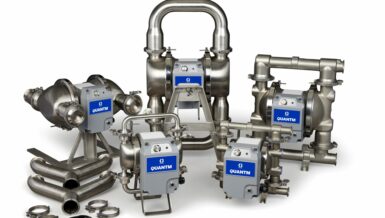The liquid known as a rigid engineered nanocomposite was a key part of the production process, and had a low to medium viscosity similar to a ketchup (700 to 1000cPs), which was very abrasive and quick setting. When handling any fluid that is quick setting and also abrasive it is essential that the right pump is specified to prevent premature pump failure.
The ceramic adhesive is used in injection moulding, a method for making components from fibre plastic composites. A reaction resin is poured onto the dry, semi-finished fibre parts and these parts are consequently immersed by applying pressure within a closed vessel.
For this process to work effectively precise metering and dispensing of resin is essential. However, there are several challenges that composite manufacturers face when it comes to pumping and metering resins.
This particular liquid was a ceramic-based high performance composite resin which was extremely viscous and abrasive to traditional pump designs. Not only can the adhesive wreak havoc with internal pump parts, but the thick and sticky consistency of the resin creates high pressure losses within pipework.
The resin was very susceptible to solidifying and would set prematurely if air leaked in, which happens with pump designs which contain a seal. Once resin sets within a pump it needs to be manually cleaned either by hand, or by being immersing the unit in a solvent such as acetone, but such methods are not always successful and can be time consuming to resolve.
The ceramic adhesive transfer pump was required to empty and refill vats of ceramic-filled resin, and had to achieve a reliable flow rate of around 800L/hour at 4 bar pressure.
Here at North Ridge Pumps, we are not tied to a specific pump technology meaning we can specify the best pump for a particular application based on the lowest lifetime cost.
After weighing up all of the options, we decided that a peristaltic pump would be the most suitable solution for a variety of reasons.
The benefits of peristaltic pumps
Peristaltic pumps are a simple design consisting of a single piece of hose connecting the inlet to the outlet. Rollers or shoes rotate slowly within the pump head compressing the hose against the casing creating a vacuum. This gently conveys fluid from the inlet towards the outlet.
The rotary motion of a peristaltic pump is very slow, which is why a gearbox is used to step down the motor speed to as little as 1rpm within the pump head.
So for this project the benefits of a peristaltic pump to our client were:
- Due to the tough, hardwearing hose, slow speed and gentle action, a peristaltic pump would handle the highly abrasive ceramic-based high performance composite resins used by the client
- There are no internal valves, seals or parts which could clog and there’s also zero chance of air getting in. Should the pump ever clog the hose can be simply replaced. With other designs this would involve a time-consuming process of cleaning individual pump parts after immersion in acetone to weaken the bonds
- The very low working speed of only 29rpm ensures that the pump doesn’t suffer any abrasive wear. Also the resin remains homogenous and doesn’t contain air bubbles
- The resin dispensing pump could cope with the fluid’s high density, and be relatively unaffected by changes in the fluid’s viscosity
- The pump is reversible meaning it could also be used for the emptying of tanks as well as resin transfer
- Due to the predictable nature of the pump’s operation the client’s team could accurately measure flow rates, and ensure that the tanks were filled at a predictable speed without the use of flow meters which could also clog
- We supplied the units with a motor-mounted inverter enabling the client to control transfer rates at the touch of a button
- As the hose is the only part that wears out, peristaltic pumps are recognised as being very low maintenance. When the hose requires replacement, it can be exchanged quickly and simply
If you have an application involving the transfer, circulation or injection of viscous solid-laden liquids, and need advice on the best pump to use, speak to North Ridge Pumps to see how we can help.































